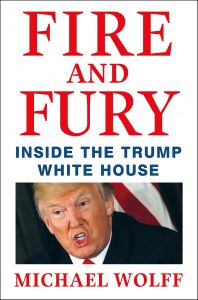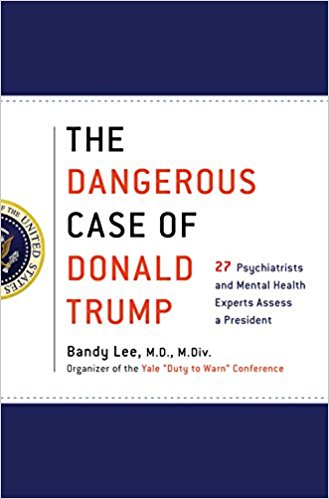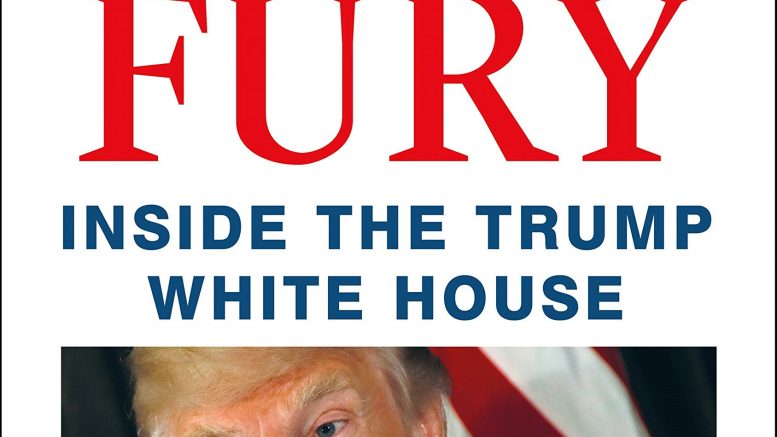
By Michael Wolff
New York Magazine (1/3/17)
On the afternoon of November 8, 2016, Kellyanne Conway settled into her glass office at Trump Tower. Right up until the last weeks of the race, the campaign headquarters had remained a listless place. All that seemed to distinguish it from a corporate back office were a few posters with right-wing slogans.
Conway, the campaign’s manager, was in a remarkably buoyant mood, considering she was about to experience a resounding, if not cataclysmic, defeat. Donald Trump would lose the election — of this she was sure — but he would quite possibly hold the defeat to under six points. That was a substantial victory. As for the looming defeat itself, she shrugged it off: It was Reince Priebus’s fault, not hers.
She had spent a good part of the day calling friends and allies in the political world and blaming Priebus, the chairman of the Republican National Committee. Now she briefed some of the television producers and anchors whom she had been carefully courting since joining the Trump campaign — and with whom she had been actively interviewing in the last few weeks, hoping to land a permanent on-air job after the election.
Shortly after 8 p.m. on Election Night, when the unexpected trend — Trump might actually win — seemed confirmed, Don Jr. told a friend that his father, or DJT, as he calls him, looked as if he had seen a ghost. Melania was in tears—and not of joy.
Even though the numbers in a few key states had appeared to be changing to Trump’s advantage, neither Conway nor Trump himself nor his son-in-law, Jared Kushner — the effective head of the campaign — wavered in their certainty: Their unexpected adventure would soon be over. Not only would Trump not be president, almost everyone in the campaign agreed, he should probably not be. Conveniently, the former conviction meant nobody had to deal with the latter issue.
As the campaign came to an end, Trump himself was sanguine. His ultimate goal, after all, had never been to win. “I can be the most famous man in the world,” he had told his aide Sam Nunberg at the outset of the race. His longtime friend Roger Ailes, the former head of Fox News, liked to say that if you want a career in television, first run for president. Now Trump, encouraged by Ailes, was floating rumors about a Trump network. It was a great future. He would come out of this campaign, Trump assured Ailes, with a far more powerful brand and untold opportunities.
“This is bigger than I ever dreamed of,” he told Ailes a week before the election. “I don’t think about losing, because it isn’t losing. We’ve totally won.”
From the start, the leitmotif for Trump about his own campaign was how crappy it was, and how everybody involved in it was a loser. In August, when he was trailing Hillary Clinton by more than 12 points, he couldn’t conjure even a far-fetched scenario for achieving an electoral victory. He was baffled when the right-wing billionaire Robert Mercer, a Ted Cruz backer whom Trump barely knew, offered Trump’s campaign an infusion of $5 million. Trump didn’t turn down the help—he just expressed vast incomprehension about why anyone would want to do that. “This thing,” he told Mercer, “is so fucked up.”
Steve Bannon, who became chief executive of Trump’s team in mid-August, called it “the broke-dick campaign.” Almost immediately, he saw that it was hampered by an even deeper structural flaw: The candidate who billed himself as a billionaire — ten times over — refused to invest his own money in it. Bannon told Kushner that, after the first debate in September, they would need another $50 million to cover them until Election Day.
“No way we’ll get 50 million unless we can guarantee him victory,” said a clear-eyed Kushner.
“Twenty-five million?” prodded Bannon.
“If we can say victory is more than likely.”
In the end, the best Trump would do is to loan the campaign
$10 million, provided he got it back as soon as they could raise other money. Steve Mnuchin, the campaign’s finance chairman, came to collect the loan with the wire instructions ready to go so Trump couldn’t conveniently forget to send the money. …
*****
GOP Senator Opted For Private Briefing On The Amendment Allowing For Removal Of The President From Office: Report

By Bob Brigham
The Raw Story (1/3/18)
Yale School of Medicine’s Law and Psychiatry Division professor Dr. Bandy Lee was summoned to Capitol Hill in November to brief lawmakers on the 25th Amendment and President Donald Trump’s mental state, Politico reports.
On Dec. 5 and 6, Dr. Lee warned lawmakers, “he’s going to unravel, and we are seeing the signs.”
The private briefings included a Republican senator who Dr. Lee declined to identify.
Dr. Lee edited the bestselling book The Dangerous Case of Donald Trump, featuring the work of 27 psychiatrists, psychologists and mental health experts to assess President Trump’s mental health.
“One senator said that it was the meeting he most looked forward to in 11 years,” Lee recalled. “Their level of concern about the president’s dangerousness was surprisingly high.”
The 25th Amendment, along with impeachment, are the two legal mechanisms to remove Trump from officeprior to the end of his term in January 2021.
Mental health professionals have hosted nationwide town hall meetings to warn about Trump’s mental state, citing a “duty to warn” of violent threats.
Following President Donald Trump’s Twitter threats against North Korea, Lee’s group demanded Twitter take “immediate action” and suspend Trump’s Twitter account. …

